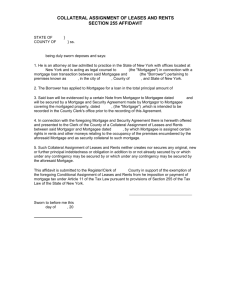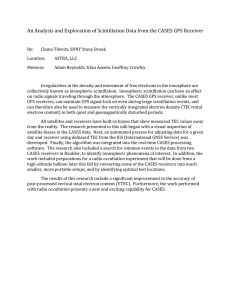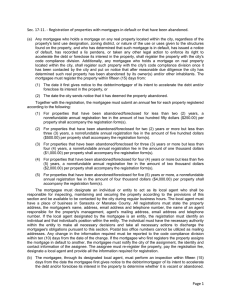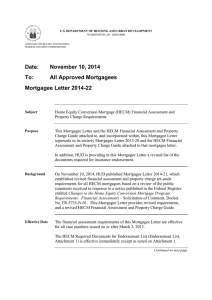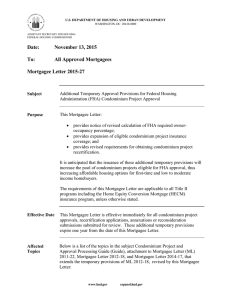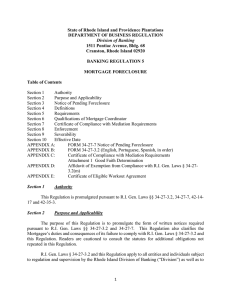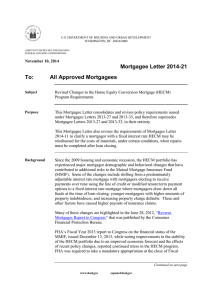PROPERTY SALE BY RECEIVERS
advertisement
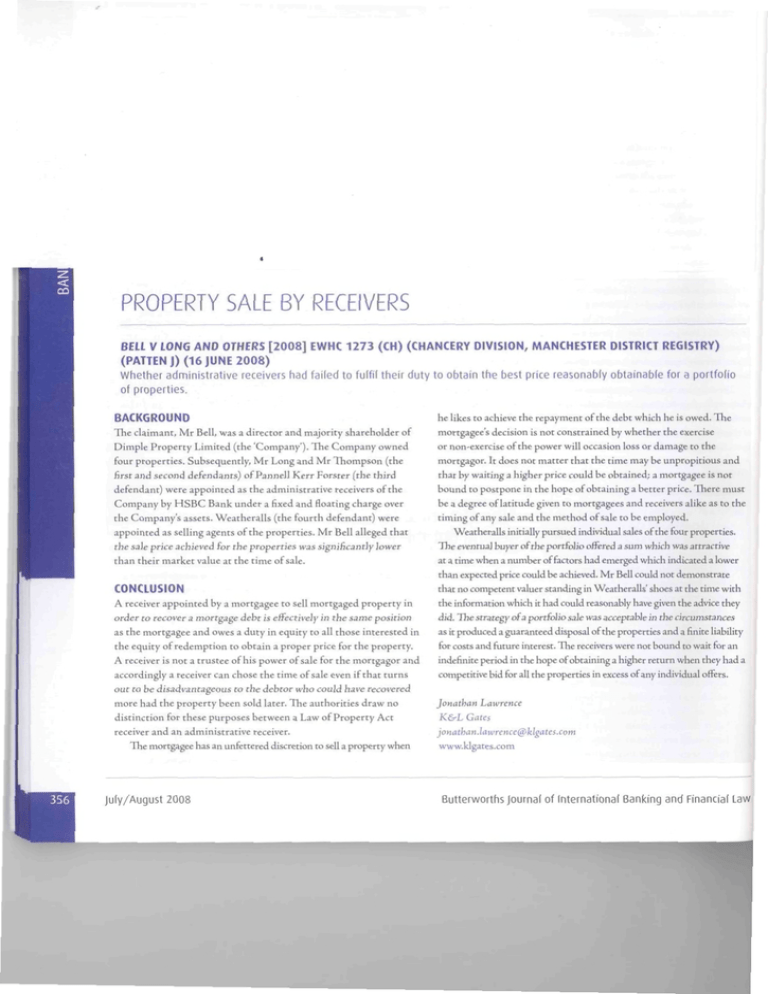
PROPERTY SALE BY RECEIVERS
BELL V LONG AND OTHERS [2008] EWHC 1273 (CH) (CHANCERY DIVISION, MANCHESTER DISTRICT REGISTRY)
(PATTEN J) (16JUNE 2008)
Whether administrative receivers had failed to fulfil their duty to obtain the best price reasonably obtainable for 9 portfolio
of properties.
BACKGROUND
"riic claimant, Mt Bell, was a director and majority shareholder of
Dimple Property Limited (the 'Company'). The Company owned
four properties. Subsequently, Mr l-ong and Mr Thompson (the
first and second defendants) of Pannell Kerr Fotsrcr {the third
defendant) were appointed as the administrative receivers of the
Company by HSBC Bank under a fixed and floating charge over
the Company's assets. Wealheralls {the fourth defendant) were
appointed as selling agents of the properties, Mr Bell alleged that
the sale price achieved for the properties was significantly lower
than their market value at the time of sale.
CONCLUSION
A receivet appointed by a mortgagee to sell mortgaged property in
order to tecover a mortgage debt is effectively in the same position
as the mortgagee and owes a duty in equity to all rhose interested in
the equity of redemption to obtain a proper price for the property.
A receiver is not a trustee of his power of sale for the mortgagor and
accordingly a receiver tan chose the time of sale even if that turns
out to be disadvantageous to the debtor who could have recovered
more had the property been sold later. The authorities draw no
distinction for these purposes between a Law of Property Act
receiver and an administrative receiver.
The mortgagee has an unfettered discretion to sell a property when
July/August 2008
he likes to achieve the repayment of the debt which he is owed. Tlie
mortgagee's decision is not constrained by whether the exercise
or non-exerciseof^the power will occasion loss or damage to the
mortgagor. It does nor matter that the time maybe unpropicious and
that by waiting a liigher price could be obtained; a mortgagee is not
bound to postpone in the hopeofobtaininga better price. There must
be a degree of latitude given to mortgagees and receivers alike as to the
timing of any sale and the method of sale to be employed.
Weathcralls initially pursued individual sales of the four properties.
The eventual buyer of the portfolio offered a sum which was attractive
at a time when a number of factors had emerged which indicMed a lower
than expected price could be achieved. Mr Bell could not demonstrate
that no competent valuer standing in Weatheralls' shoes at the time with
the information which it had could reasonably have given the advice they
did. The strategy of a portfolio sale was acceptable in the circumstances
as it pioduced a guaranteed disposal of the properties and a finite liability
for costs and fiature interest. The receivers were not bound to wait for an
indefinite period in the hope of obtaining a higher return when tliey had a
competitive bid for all the properties in excess of jny individual oilers.
Jonathan Lawrence
K^L Gutes
ionathan.laK'reiiie<^klgales.com
WW w.klgates. com
Butterworths Journal of International Banking and Financial Law



